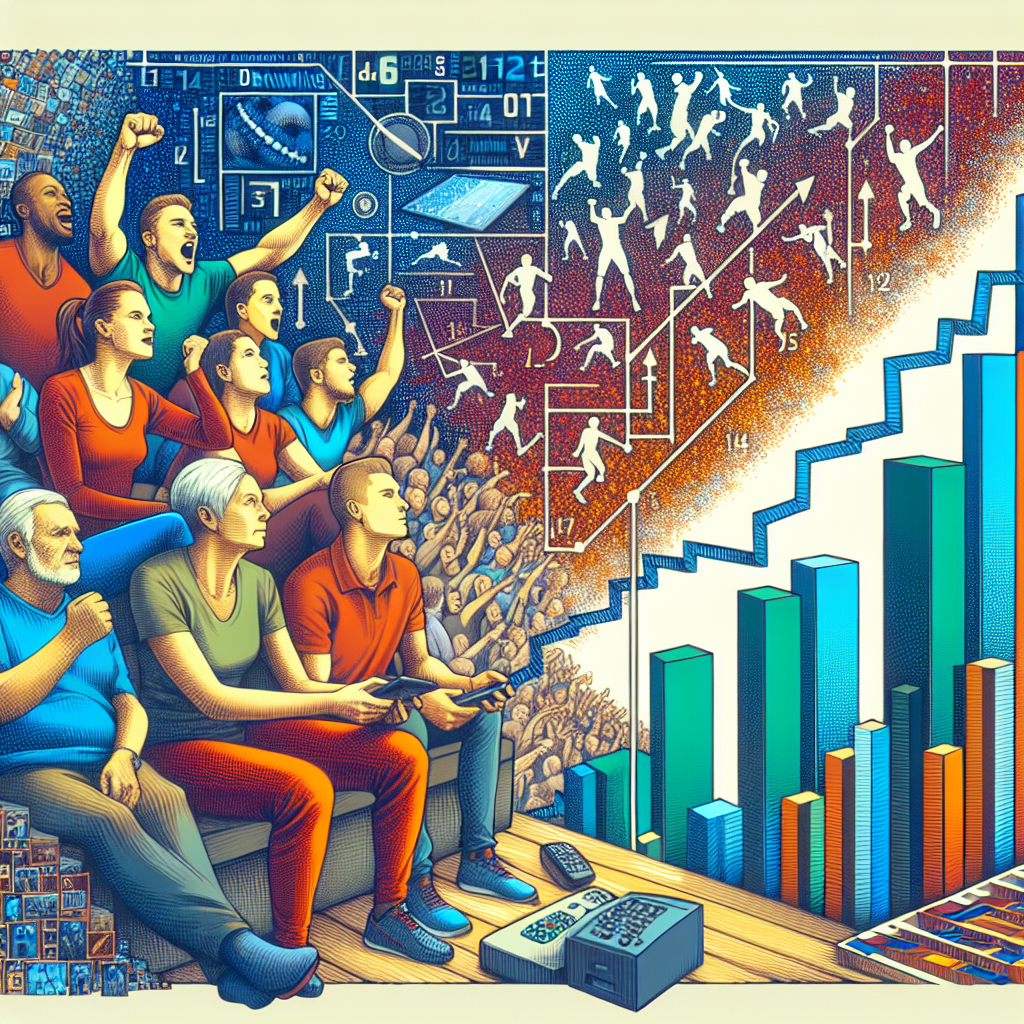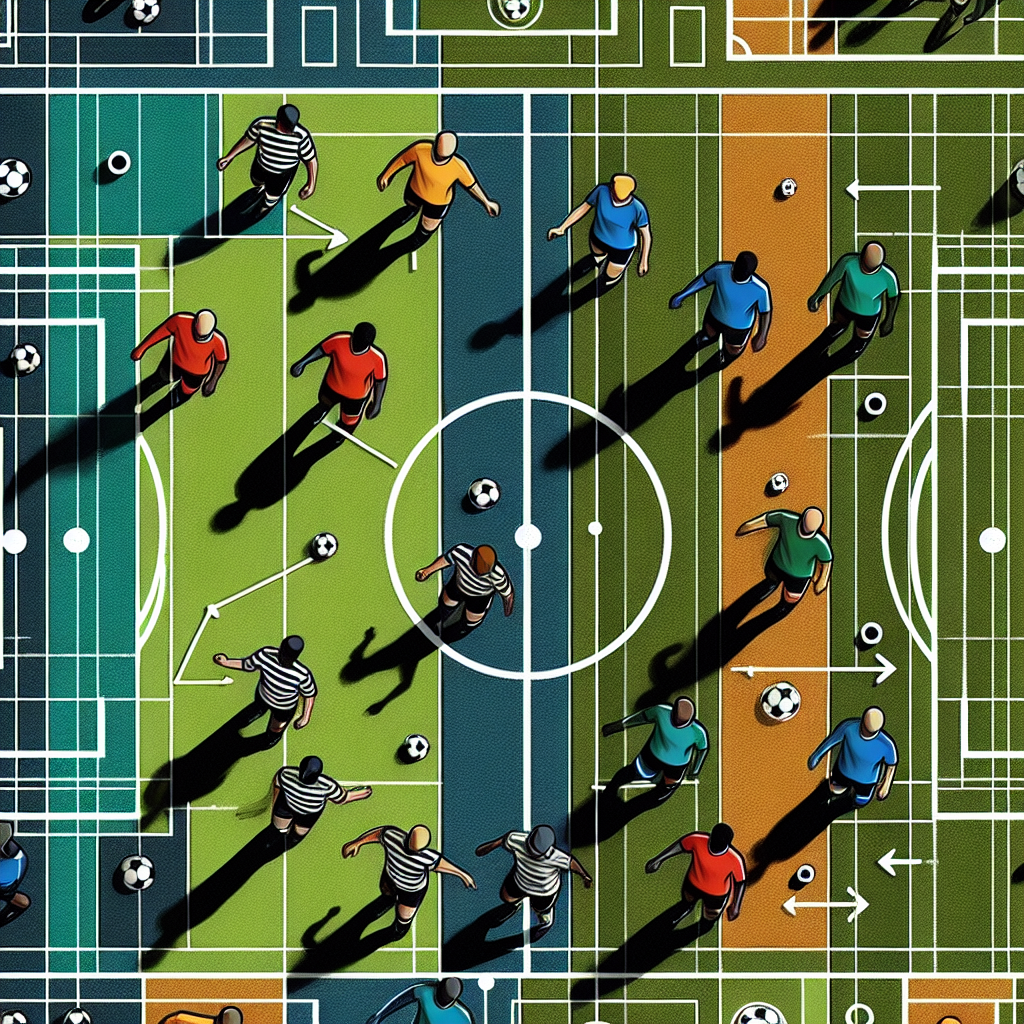
Introduction
The psychology behind sports rankings is a multifaceted subject that attracts the interest of fans, psychologists, and professionals alike. Sports rankings underpin everything from fan loyalty to team performance perceptions, shaping how we view competition. In 2025, with the ongoing evolution of sports analytics and social media influence, understanding what drives fan passion towards rankings is more relevant than ever. This article delves deep into the mental frameworks that dictate fan engagement with sports rankings, highlighting emotional, cognitive, and social factors that fuel this dynamic relationship.
The Importance of Rankings in Sports
Rankings serve as a critical barometer for measuring team performance and success, influencing everything from media coverage to sponsorship deals. In 2025, nearly every major sport utilizes a ranking system, whether it’s the FIFA World Rankings for soccer or the College Football Playoff rankings in the United States. These rankings are meticulously crafted based on a range of criteria, including game outcomes, opponent strength, and historical performance. Fans closely track these rankings, and they become a topic of everyday conversation, driving engagement and a sense of community among enthusiasts.
Additionally, rankings play a pivotal role in shaping fan expectations. A highly ranked team may generate buzz and excitement, leading to increased ticket sales, merchandise purchases, and viewer ratings. Conversely, a lower-ranked team often faces scrutiny and diminished support, which can significantly impact its long-term brand. As teams rise and fall in the rankings, fans experience a roller coaster of emotions, creating a relentless cycle of passion and investment in their chosen teams.
<h2Emotional Investment in Rankings
Emotions are at the core of fan behavior, and rankings tap directly into this psychological landscape. Fans often tie their identities to their favorite teams and the corresponding rankings, making them feel a sense of pride or embarrassment based on their team’s position. This emotional investment is particularly pronounced during high-stakes tournaments, where a single victory can propel a team up the rankings and reignite fan enthusiasm. For many, following rankings becomes an emotional rollercoaster, with celebrations intertwining with heartbreak as they navigate their team’s fluctuating performance.
Moreover, the emotional aspects of rankings are heightened in the digital age. With social media saturation in 2025, fans are empowered to express their opinions and feelings in real time, further amplifying the emotional stakes tied to rankings. Twitter, Instagram, and sports forums have become the virtual stadiums where fans celebrate victories or lament defeats. The immediate feedback loop from these platforms serves to intensify emotional responses tied to rankings, making the experience even more visceral for fans who thrive on interaction.
Cognitive Dissonance and Rankings: A Closer Look
Cognitive dissonance theory explains the psychological discomfort people feel when their beliefs conflict with reality. In sports, this manifests significantly in the context of rankings. A devoted fan may struggle to reconcile their unwavering faith in a poorly ranked team with the evident statistics that suggest otherwise. This dissonance creates a psychological challenge that fans navigate in various ways. Some resort to rationalization, convincing themselves that external factors—such as referee bias or injuries—unfairly affect rankings. Others may delve deeper into analyzing game statistics or player performance to justify their continued support.
In a world where data and analytics rule the narrative, fans often face overwhelming information about their teams, which can further complicate their emotional attachments. The push and pull of fan allegiance versus ranking reality lead individuals to construct alternate narratives, often filtering out dissonant information to preserve their fan identity. This ongoing internal dialogue underscores the psychological complexity behind sports rankings, demonstrating how cognitive frameworks underpin the fervor and loyalty fans display, even in the face of disappointing outcomes.
The Social Dimensions of Sports Rankings
The community aspect of sports fandom plays a critical role in enhancing the psychological impact of rankings. In 2025, communities built around specific teams are more robust than ever, transcending geographical boundaries thanks to digital connectivity. The sharing of ranking information and team performance creates a sense of identity among fans. For many, their allegiance to a particular team serves as a form of social connection, fostering relationships with fellow fans that can provide emotional support and a sense of belonging.
This social dimension also manifests through group dynamics and collective behaviors. Fans are more likely to be vocal about their team’s ranking, participating in discussions and debates across platforms. During critical ranking announcements, fans rally together, and this communal engagement amplifies emotions—both positive and negative. The passion surrounding rankings fosters camaraderie, turning individual sentiments into a collective experience that can galvanize fan bases and raise team morale, creating a powerful feedback loop that reinforces loyalty and community engagement.
The Future of Rankings in Sports and Fan Engagement
As we move forward into 2025 and beyond, the role of rankings in sports is set to evolve further, driven by advancements in technology and data analytics. The introduction of artificial intelligence and machine learning may offer more nuanced ways to understand team performance, providing fans with deeper insights and more meaningful rankings. With the proliferation of alternate data sources, such as player health metrics and psychology assessments, the nature of rankings will transform, fostering a more informed fan base that craves actionable insights and informed narratives.
Moreover, social media’s dynamic landscape will continue to redefine how fans interact with rankings. The rise of influencers and content creators in the sports domain is a trend we can expect to see thrive further, with these figures shaping public opinion and influencing fan sentiment toward team standings. Live-streaming of events and interactive platforms may create new avenues for fans to engage with rankings actively, finding themselves further immersed in discussions and evaluations of team success amidst the ever-changing landscape of the sports world.
Conclusion
Understanding the psychology behind sports rankings and what drives fan passion provides invaluable insights into the dynamics of sports fandom. Emotional investment, cognitive dissonance, and social connectivity all play critical roles in shaping the relationships fans have with rankings. As we move further into 2025, the evolution of technology and community practices promises to make this relationship even more intricate. By embracing these psychological factors, sports organizations, marketers, and fans themselves can create more engaging experiences that resonate powerfully within the global sports community.
FAQs Section
What are sports rankings, and why are they important?
Sports rankings are systems that evaluate and compare the performance of teams or players based on various factors, such as their win-loss records and competition levels. They are essential as they influence public perception, sponsor interests, and fan engagement.
How do rankings influence fan emotion?
Rankings directly impact fan emotions by creating a sense of pride or disappointment associated with their team’s performance. A high-ranking can boost morale, while a low ranking may evoke frustration or concern among fans.
What role does social media play in fan engagement with rankings?
Social media amplifies fan engagement by providing platforms for real-time discussions, celebrations, and critiques related to sports rankings. Fans can connect, share opinions, and build communities around their teams more easily than ever before.
How do cognitive biases affect fans’ perceptions of rankings?
Cognitive biases, such as confirmation bias, can lead fans to selectively interpret information to support their loyalty to a team, often ignoring facts that don’t align with their beliefs. This can create a dissonance between their feelings and the actual performance reflected in rankings.
What does the future hold for rankings in sports?
The future of sports rankings is likely to involve advanced analytics, AI, and personal data, leading to more comprehensive assessments of team and player performances. Social engagement will also evolve, creating a richer and more interactive fan experience related to rankings.
Understanding Team Offensive Efficiency Ratings
16. Dezember 2025The Role of Advanced Stats in Evaluating Team Chemistry
16. Dezember 2025How to Interpret Team Defensive Metrics
16. Dezember 2025
Leave a reply Antwort abbrechen
-
How to Read Sports Betting Lines Like a Pro
10. Dezember 2025 -
Exploring the Variability of College Sports Schedules
13. Dezember 2025 -
The Rising Importance of Political Debates in Modern Elections
15. Dezember 2025



